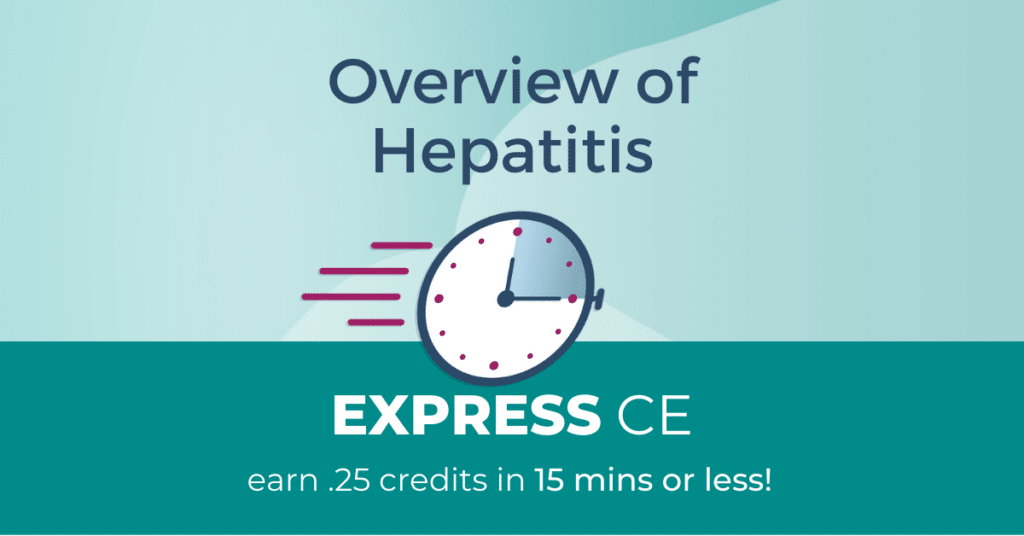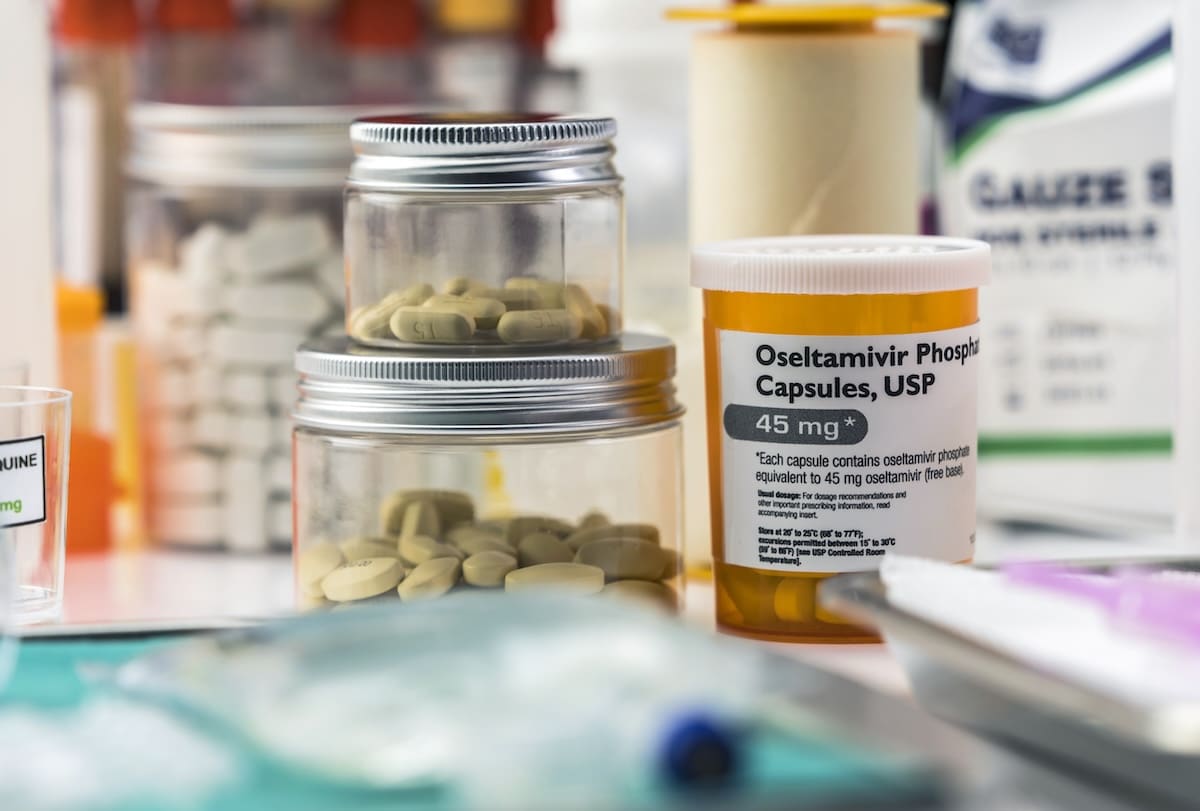I can’t think of Hepatitis-A without thinking of my childhood. My oldest brother was in 6th grade and was extremely ill. The rest of the Kreckel kids were in 5th, 3rd and 2nd grade. He was diagnosed with hepatitis the day before Christmas in 1967.
He spent a week in the hospital in isolation. I remember going to the hospital on Christmas day with my family and waving to him through the glass window. Any toys he got that Christmas given to him while he was in the hospital had to be destroyed!
On Christmas Eve we had to go to our family doctor’s office to get a shot of gamma globulin. We were joined by our three cousins and 6 family friends at his office, all of us getting the gamma globulin. My Mom was a wonderful baker, and she frequently shared her homemade bread. Because of her generosity, 12 little kids from the ages of 2 to 14 got shots that day.
Of course, I was the problem patient. I didn’t want a shot in the buttocks and squeezed my gluteal muscles as tight as possible. The doctor told me to relax, and I refused. He smacked my rear end, and I yelled, causing my muscles to relax and he injected me. How things have changed in healthcare!
Table of Contents
HEPATITIS
- Acute liver injury — Most patients will recover completely once the offending medication is stopped. In the setting of cholestatic injury, jaundice can take weeks to months to resolve.
- Chronic liver injury — resolution usually occurs when offending drug is stopped, but this pattern of liver injury may progress to cirrhosis and liver failure.
COMMONLY IMPLICATED MEDICATIONS IN HEPATITIS
- Acetaminophen: Educate patients about not exceeding maximum doses of 3000 mg and measuring pediatric doses accurately. The injury to the liver is due to a direct, toxic effect of high doses of acetaminophen. Hepatotoxicity most commonly arises after a suicide attempt using more than 7.5 grams (generally more than 15 grams) as a single overdose. Hepatic injury generally starts 24 to 72 hours after ingestion.
- Methotrexate: prevent liver injury with folic acid as well as frequent liver function tests. Methotrexate is well known to cause serum aminotransferase elevations. Long term therapy has been linked to development of fatty liver disease, fibrosis and even cirrhosis. Administration of folic acid (1 mg daily) has been shown to decrease the rate of liver test abnormalities on therapy without affecting the efficacy of methotrexate.
- Duloxetine (Cymbalta®):should not be administered to patients with substantial alcohol use or any hepatic insufficiency. Duloxetine can induce liver damage in patients with a medical history of chronic liver disease or alcohol consumption, as well as patients with major depressive disorder.
- Isoniazid: Blacks and Hispanics are more susceptible to toxicity by this drug. Even with monitoring, isoniazid remains a major cause of acute liver failure due to idiosyncratic reactions and is associated with several instances of acute liver failure and death, or emergency liver transplantation in the United States each year.
- Kava kava:an herb used for anxiety, and has an FDA warning for hepatotoxicity, was withdrawn from the German market.
- Hepatitis Cmeds: (Epclusa, Harvoni, Zepatier) may cause liver damage especially in patients who also have hepatitis B. These meds now require a black box warning.
- Alcohol:Persons who abuse alcohol are susceptible to drug toxicity because alcohol induces liver injury and cirrhotic changes that alter drug metabolism. Alcohol causes depletion of glutathione (hepatoprotective) stores that make the person more susceptible to toxicity by drugs (especially acetaminophen).
- Amiodarone:Liver injury can be severe and lead to liver failure and death. The acute injury with intravenous infusions can cause an acute liver failure but is usually transient and reverses rapidly. Amiodarone causes liver damage ranging from asymptomatic serum aminotransferase elevation to hepatic failure requiring liver transplantation.
Hepatitis-A—the basics
Hepatitis-A is typically acquired through ingestion (through fecal-oral transmission) and replicates in the liver. The virus that causes Hepatitis-A is a Picornavirus (RNA) which is stable at low pH and is inactivated by temperature of 185°F or higher, formalin, chlorine.
After ten to twelve days virus is present in blood and is excreted via the biliary system into the feces. Incubation period ranges from fifteen to fifty days with about a 28-day average. Viruses are present in blood and feces 10 to 12 days after infection. Virus excretion may continue for up to 3 weeks after onset of symptoms. Patients are most infectious 1 to 2 weeks before onset of illness.
Symptoms of Hepatitis-A
Abrupt onset of fever, malaise, anorexia, nausea, abdominal discomfort, dark urine, jaundice. Most children are asymptomatic. Older kids and adults are symptomatic. Clinical illness I usually limited to two months.
Humans are the only sources of Hepatitis-A. There are no insect or animal reservoirs. Spread is oral-fecal with contaminated food or water. Although it is spread throughout the world, it is highly endemic in some areas, particularly Central and South America, Africa, the Middle East, Asia, and the Western Pacific. Most vaccinations are given as “travel vaccines”.
In the United States the rate of Hepatitis-A declined 95.5% since vaccination initiation in 1996 to 2011. From 2016-2021, over 37,000 outbreak-associated cases were reported from 35 states. Before vaccination most cases occurred in the western states.
Hepatitis A vaccine – Havrix® & Vaqta®
- Who gets it?
- Initially it was recommended for men having sex with men, injection drug users and children living in states with a high disease rate.
- In 2020, ACIP recommended vaccination of all children and adolescents aged 2 through 18 years who have not previously received Hepatitis-A vaccine and routine vaccination of all persons with HIV age 1 year or older.
- My daughter Dr. Gretchen Garofoli tells all her students to get the Hepatitis-A vaccine if they eat out frequently in restaurants.
| · Havrix: available as: | · Vaqta available as: |
| · 360EL.U/0.5ml (pediatric) | · 25u/ 0.5ml (pediatric, adolescent) |
| · 720EL.U/0.5ml (pediatric) | · 50u/ 1ml (adult) |
| · 1440 EL.U/1ml (adult formulation) |
| Children 1-18 | Vaccine | Dose | # of Doses | Schedule in Months |
| Havrix | 720elu | 2 | 0, 6-12 months later | |
| Vaqta | 25u | 2 | 0, 6-18 months later | |
| Adults Over 19 | Vaccine | Dose | # of Doses | Schedule in Months |
| Havrix | 1440elu | 2 | 0, 6-12 months later | |
| Vaqta | 50u | 2 | 0, 6-18 months later | |
| ||||
Vaccine Efficacy:
- Highly immunogenic
- More than 95% of adults develop protective antibody within 4 weeks of a single dose.
- More than 97% of children and adolescents will be seropositive within 1 month of the first dose.
Have a great day on the bench!!
Reference: LiverTox: Clinical and Research Information on Drug-Induced Liver Injury [Internet]. Bethesda (MD): National Institute of Diabetes and Digestive and Kidney Diseases; 2012-. Available from: https://www.ncbi.nlm.Snih.gov/books/NBK547852/







